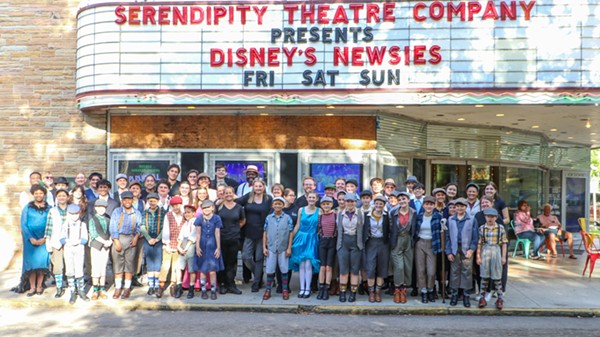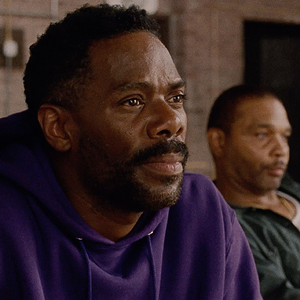THE RECENT NEWS of Amazon’s purchase of Whole Foods was of course the subject of some entertaining, if mostly predictable, jokes:
“Amazon spends $13.7 billion on Whole Foods....leaves with 3 kale juices and a bag of salted almonds,” went one tweet.
However, for people who actually pay attention to the world around them, when the chuckles fade what they might be left with is a grim sense of foreboding.
Amazon not only handles almost half of all the planet’s online commerce, it’s one of the most aggressively expanding companies in the world, with its Whole Food purchase representing a serious move into the grocery business.
Amazon is owned by the world’s third richest person, Jeff Bezos, who also owns the Washington Post, arguably the world’s second-most influential newspaper.
Amazon’s most buzzworthy product, Alexa, is essentially a highly invasive surveillance device that people not only volunteer to put in their homes, but pay good money to do so.
Less well known is Amazon’s other overlap with the intelligence/surveillance state, in the form of a $600 million-plus cloud computing contract with the CIA. (Amazon owns 45 percent of the world’s cloud computing market.)
I’m sure you’re not bothered by the same company that puts Alexa into your home also managing a CIA database, right? I mean, what’s the worst that could happen?
But if you’re like most folks, you’re probably not bothered by it at all.
Maybe you should be.
Most of us hopefully learned a little something in school about the so-called “Robber Barons” of the late 19th Century, notoriously self-aggrandizing capitalists like J.P. Morgan, John Rockefeller, Andrew Carnegie, Cornelius Vanderbilt.
The term Robber Baron is now shorthand for any particularly rapacious businessman who seeks total monopoly, and doesn’t care how he gets it.
When the Robber Barons used to gather at the Jekyll Island Club off the Georgia coast, at its peak the club hosted one-sixth of the entire world’s wealth, all at once.
But today’s Silicon Valley tech tycoons such as Jeff Bezos, Mark Zuckerberg, and Larry Ellison, to name just a few, collectively hold vastly more wealth and true global power than the Robber Barons ever thought of having in their most predatory fever dreams.
Instead of oil and railroads and banks, the new Robber Barons of the 21st Century control nearly all the data our data-dependent society is built on, from the “free” platforms we use to share our private information (the companies then mining that information to use and sell), to the hidden, proprietary algorithms that determine which news, “fake” or otherwise, shows up on your feed.
Why there isn’t more concern about this is baffling to me. But I suppose it’s understandable in that the all-pervasive online environment is the water we all swim in now, across most class and identity lines.
The irony is rich. If your Facebook feed is anything like mine, you see post after post all day long complaining about crony capitalism and rampant corporate greed.
But almost never do these posts single out Facebook and its ownership for the same type of monopolistic overreach. It’s almost funny.
A phrase you’ve probably heard a thousand times over the past few months is “Russian oligarch.” Apparently, any Russian who makes money in business has to be labeled an oligarch by the U.S. media.
Meanwhile Jeff Bezos is the textbook definition of an oligarch: The third-richest human being, who owns one of the world’s most vital and rapidly growing companies, who owns a hugely influential newspaper in the nation’s capital, and who now wants to provide the food you eat.
But I wouldn’t look for the Washington Post to call him an oligarch anytime soon.
Another one of America’s huge blind spots about our new techno-plutocracy is the subject of charity. I am assured that most good Americans love the idea of companies giving back to the community in a spirit of goodwill, etc.
Except that many of our new Robber Barons are pretty stingy. In some ways more stingy than the old ones.
Andrew Carnegie built 3,000 public libraries. Cornelius Vanderbilt built a university now nicknamed “the Harvard of the South.”
James Duke of North Carolina tobacco fame built Duke University, one of the first in the South to admit women, its great chapel designed by one of America’s first African American architects.
Even the allegedly miserly John Rockefeller established many schools for emancipated African Americans in the South, including what would become Spelman College in Atlanta. He contributed what today would be hundreds of billions of dollars to health organizations.
By contrast, the modern company that employs the Asian equivalent of indentured servants to manufacture the iPhone on which you type all those posts about greedy capitalists is hoarding $250 billion in cash, and is notorious for giving little to charity.
Yet, everybody loves Apple. Go figure.
Ironically, the one tech tycoon who everyone seems to hate — everyone under 40 anyway — is Bill Gates, who is actually by far the most charitable of them all, and probably the only true philanthropist among all of them.
Are today’s tech plutocrats seen as being more liberal, more open-minded, than the Robber Barons of old, and therefore exempt from the usual scorn directed toward unbridled capitalism?
In any case, the obvious truth is that if you’re against rule by the One Percent, against widening wealth disparity, against too much wealth in the hands of too few, against corporate monopoly... you should probably hold Silicon Valley tech tycoons to the same high standard to which you hold Walmart, or Wall Street, or fracking companies, or insurance conglomerates, or hedge fund managers.
But, in this very connected, and interconnected, world, that seems to be a major disconnect.
Oh, by the way, I won’t even get into the remarkably low employment figures for people of color in the “progressive” Silicon Valley tech industry.
Maybe you can ask Alexa about that and see what she says.



























